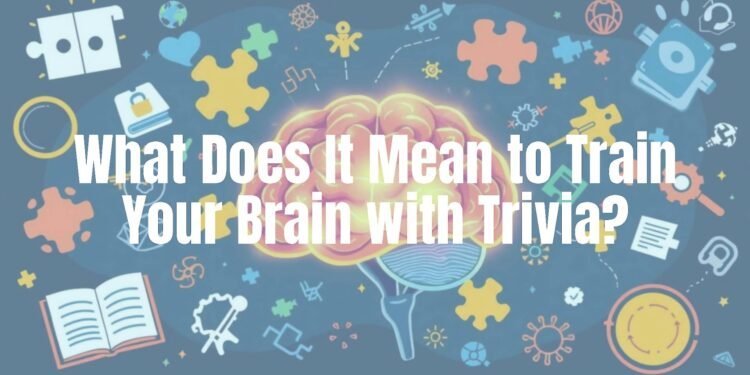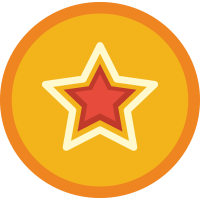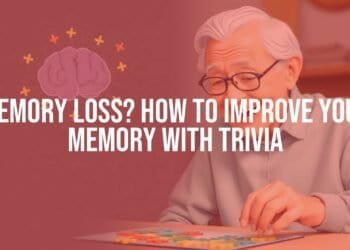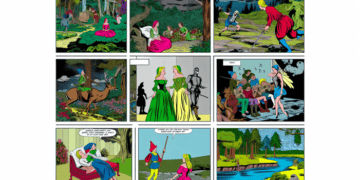Training your brain with trivia is not about memorizing every odd fact out there, though that can be fun. It’s about keeping your mind active with quick thinking and useful recall. Think of it like a mental workout, a friendly mix of facts, numbers, and light competition. It’s a playful way to keep your mind working smoothly and staying sharp.
Like your body needs exercise, your brain needs mental activity. Trivia gives you plenty of that, asking you to remember details, make links, and think fast. It turns passive learning into an active, enjoyable habit, showing that learning can be a lifelong joy instead of a chore.
How Trivia Engages Cognitive Functions
Trivia is more than a game; it’s a full brain workout that taps into many skills. When you hear a trivia question, your brain doesn’t just pull out an answer. It gets busy, looking at the question, sorting through what you know, and making guesses. This process wakes up your brain’s networks and strengthens the links that help with memory.
From the moment you hear a clue, your thinking skills kick in. You spot key words, think about likely categories, and pull up related facts. This mix of memory, logic, and problem-solving is why trivia is so good for your mind. It asks you to be quick and flexible, helping your brain do its best.
Is Trivia a Form of Brain Exercise?
Yes. Your brain isn’t a muscle, but it acts like one: it gets better with steady “workouts.” Doing trivia and other thinking tasks often helps nerve cells connect more strongly, which supports brain health. This matters as we age, because recall tasks help keep the mind clear and steady.
Psychologist Deborah Stokes, Ph.D., notes that keeping facts about topics we enjoy works the frontal cortex, which helps as the brain matures. Studies show that these mental workouts can improve memory, planning, and processing speed. Also, staying mentally active may slow age-related changes and those tied to conditions like Alzheimer’s disease and dementia. So yes, trivia is a real and enjoyable kind of brain exercise.
What Are the Benefits of Training Your Brain With Trivia?
Trivia goes well beyond fun. It brings many mental and social benefits, quietly improving parts of your thinking and day-to-day life. From better recall to easier socializing, regular trivia offers a wide range of pluses.
Each quiz or game is like an investment in your mind. You’re not just collecting facts; you’re building a mind that’s stronger, quicker, and more connected. These gains show up outside the quiz, too, helping with choices, conversations, and mood.
Trivia Improves Memory and Recall
Memory is the star of any trivia game, and testing it often is a great workout. Each time you pull up a date, a name, or a rare detail, you strengthen memory links. Research supports this: mentally active habits like trivia can help short-term, long-term, and working memory.
At the University of California, Irvine, a study found that regular trivia players showed clear improvements in memory over time. This steady practice boosted thinking and recall, especially in older adults. The more you practice remembering, the better you get, and that helps you remember things in daily life too.
Trivia Builds Mental Agility
Trivia questions often need quick thinking, problem-solving, and fast choices. When a tough question comes up, your brain analyzes, evaluates, and makes deductions. This steady mental workout builds your speed and flexibility with information.
The problem-solving you build during trivia helps in real life. It can lead to better decisions at work, stronger critical thinking for hard problems, and even more creativity when questions ask for fresh ideas. Covering many topics-from ancient history to pop culture-also grows your knowledge and makes it easier to adapt to new ideas and challenges.
Trivia Boosts Focus and Attention
With so many distractions around us, staying focused can be hard. Trivia asks for full attention. To answer well, you need to listen closely, ignore noise, and focus on the question. This steady effort trains your attention span.
Doing trivia often builds your ability to focus. This helps far beyond quizzes, improving work tasks and personal talks. You’ll feel more present and less scattered.
Trivia Creates Social Connections
Trivia nights bring people together in a fun setting. The social side is a big part of the appeal, building communication, teamwork, and a sense of belonging. Many people share stories of how trivia nights changed their social lives and led to new, lasting friendships.
Spending time with others-friends or new faces-helps mental health. Social time is linked to lower depression and more happiness. The laughs, shared wins, and teamwork in trivia can be a strong buffer against stress and loneliness, which supports overall well-being.
Trivia Helps With Stress Relief and Enjoyment
Beyond thinking skills, trivia gives you a break from daily stress. Stepping into a space of questions and answers lets your mind reset. The fun and friendly competition lift your mood.
Getting a tough question right, joking with teams, and feeling proud of your effort all add up to a positive mood. Trivia can trigger feel-good chemicals like dopamine and endorphins, which lift mood, lower stress, and support general well-being. It’s a safe, enjoyable way to feel the thrill of winning.
What Types of Trivia Activities Help Train Your Brain?
Trivia comes in many forms, with options for every taste. From classic board games to new online tools, there’s a format that fits your style and keeps your mind active. The key is to find what you enjoy and keep learning.
Whether you like solo play or team contests, the main idea is the same: active recall and building knowledge. Trying different types of trivia can also show you new topics and viewpoints, which grows your overall understanding.
| Format | How It Works | Good For |
|---|---|---|
| Board games | Cards and categories at home | Family nights, offline play |
| Pub quizzes | Team play with rounds and scores | Social time, teamwork |
| Apps/sites | Timed quizzes, leaderboards | Quick sessions, daily practice |
| Puzzles/riddles | Logic, patterns, lateral thinking | Problem-solving skills |
| Themed events | Focus on one topic or era | Deep dives into interests |
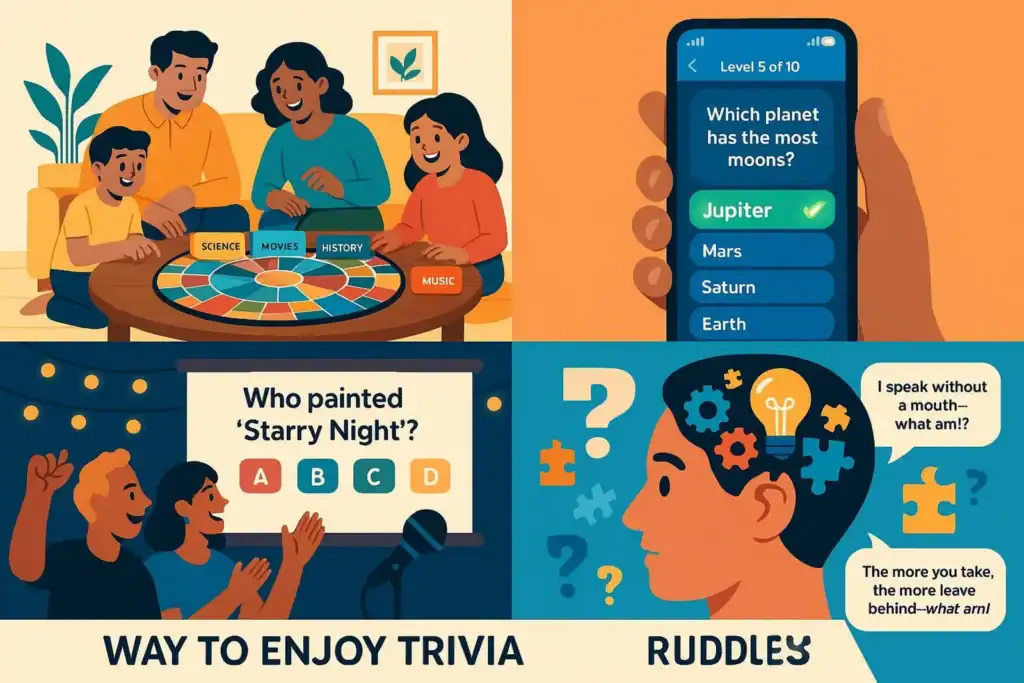
Classic Trivia Games and Quizzes
Trivia has been around for ages, with modern games catching on in the 1930s. This history gave us favorites that still stand out. Trivial Pursuit, created in 1979, became a best-selling board game. Other hits include Wits & Wagers, Smart Ass, and Bezzerwizzer, covering areas like history, science, and pop culture.
Beyond boards, many enjoy pub trivia nights, where teams play for prizes and bragging rights. These are mentally engaging and very social. Quiz shows like “Jeopardy!” and “Who Wants to Be a Millionaire?” have also kept audiences hooked for decades.
Online Trivia Platforms and Apps
Trivia has a strong presence online. Many platforms and apps offer easy, fun ways to train your brain. Apps like HQ Trivia, Trivia Crack, and QuizUp let you play with friends or others around the world in many categories. Timers and leaderboards add excitement and motivation.
Online trivia is very easy to access, so you can fit in a quick brain workout anytime. Sites also offer free quizzes on countless topics, great for practice or learning something new. With so much content, you’ll always find fresh facts to learn and recall.
Brain Teasers, Riddles, and Puzzles
While not classic “trivia,” brain teasers, riddles, and puzzles work well alongside it. They challenge your mind with logic, critical thinking, and problem-solving, not just memory. Sudoku and jigsaw puzzles train your analytical side, while riddles ask for creative thinking.
For example: “What word, when pronounced right, is wrong, and when pronounced wrong, is right?” (Answer: “Wrong.”) These tasks build focus and attention, and games like the Riddles Card Game encourage lateral thinking. Adding them to your routine gives you a well-rounded mental workout.
Themed Trivia Events and Group Challenges
To keep things fresh, try themed trivia events. Think “90s Pop Culture” or “World Travel.” Focused topics let you go deeper into areas you enjoy, which makes learning even more fun. Many venues host weekly themed nights, offering steady chances for group play.
You can also make your own themed trivia with friends or family. This builds teamwork and friendly competition, boosting the social benefits of trivia. Researching and writing questions is a strong brain exercise on its own and invites deeper learning.
How to Use Trivia for Effective Brain Training
To get the most from trivia, use a simple plan. It’s more than answering questions; it’s about engaging with the material, setting goals, and fitting trivia into your life so you get the biggest benefit. Like any workout, steady effort and progress matter.
With a little structure, you can turn trivia from a casual hobby into a useful tool for mental gains. This includes how often you play and how hard the questions should be.
Setting Brain Training Goals With Trivia
Before you start, think about what you want. Do you want better general knowledge, sharper memory, or stronger thinking skills? Clear goals help you shape your trivia time. If recall is your aim, focus on categories with exact answers. If problem-solving is the goal, try brain teasers and riddles.
Your goals might also be about personal growth, like building curiosity in new areas or feeling more confident about learning and remembering. Writing down your goals can help you track progress and stay motivated. Trivia is a path to self-improvement, and clear aims help you stay on track.
How Often Should You Practice Trivia?
Staying consistent matters. Just like you wouldn’t expect to build muscle by going to the gym once a month, your brain needs regular workouts. There’s no single right number, but a few sessions each week can keep your mind active. That might be a weekly pub quiz, a daily app, or a short time each day with brain teasers.
Make it a habit. Even short, focused sessions help. Learning new facts and practicing recall keeps memory active and sparks brain pathways. The more often you challenge your mind with trivia, the stronger and quicker it can get.
Choosing the Right Difficulty Level
A common mistake is going too easy or too hard. If questions are too simple, your mind runs on autopilot and growth slows. If they’re too hard, you may feel frustrated and quit.
Aim for the sweet spot. Start at a level that feels interesting but manageable, and raise the difficulty as your skills grow. Rebecca Marcus, LCSW, who specializes in mindfulness, says brain games should steadily increase in difficulty and variety to really challenge the mind. If you get too frustrated, dial it back; if it feels too easy, step it up.
Incorporating Trivia Into Daily Routines
It’s easier than you think to fit trivia into your day. Look for small openings. Listen to a trivia podcast on your commute, play a quick app during a break, or turn daily moments into mini-challenges.
For example, while reading an article, try to recall a related fact from a past quiz. Watching a documentary? Note an interesting fact that could be a future question. By looking for chances to ask and answer questions, you can turn ordinary moments into helpful training.
What Strategies Make Trivia-Based Brain Training More Effective?
Playing trivia helps, but a few methods can boost your results. These go beyond passive learning, help you engage more deeply, and make recall easier under pressure. Think of them as tools for a sharper, more informed mind.
From old memory tricks to proven study habits, these methods can change how you approach trivia and make each session count. They improve learning and retention so the knowledge sticks.
Mnemonic Techniques for Remembering Trivia
Mnemonics help you remember by linking new facts to things that are easier to recall. A mnemonic can be anything that aids memory. Rote learning can work, but it’s slow for large sets of facts. Memory experts like Anthony Metivier suggest smarter tools.
Try simple acronyms and rhymes, the Major System and PAO System for numbers, or the classic Memory Palace. With a Memory Palace, you place facts in familiar locations in your mind, which makes recall vivid and reliable. By adding strong images and links to your learning, even rare facts can stick.
Chunking and Categorizing Information
Our brains remember small, organized pieces better than long lists. That’s where “chunking” comes in. Instead of learning a long set of random facts, group them into smaller categories. For example, when studying history, sort by era, region, or key people.
Organizing facts makes them easier to recall and helps you see patterns. When a question comes up, clear groups in your mind speed up retrieval. This is great for building broad knowledge and making it easier to reach across topics.
Practicing Active Recall and Spaced Repetition
Passive review, like rereading notes, is weaker than active recall. Active recall means trying to remember without looking at the answer. Trivia does this naturally. To build on it, quiz yourself after learning new facts and try to answer from memory.
Spaced repetition supports this by reviewing at longer and longer gaps over time. This method uses the “forgetting curve” idea so you review just before you forget, which strengthens long-term memory. Tools like Anki can help, but you can also use self-made flashcards-especially with handwriting, which memory expert Lynne Kelly calls “a powerful encryption tool in the science of memory.”
Collaborating and Competing With Others
Trivia is social, and that social side can greatly help your brain training. Team play asks you to explain your thinking, hear other views, and build answers together. This talk and debate support memory and critical thinking. Hearing others’ methods can give you new ways to recall facts.
Friendly competition also motivates. Wanting to do well can push you to learn more and answer faster. Playing in busy places, like loud bars, lets you practice under pressure-a skill that helps in daily life. Memory expert Nelson Dellis says, “to win you need to practice competing,” pointing to the value of real-game conditions.
Common Questions and Misconceptions About Brain Training With Trivia
As with any activity that claims mental benefits, questions and myths pop up around trivia. We need to separate fact from fiction so you can set real expectations and get the most from it. Here are common questions and clear answers.
Knowing how trivia affects the brain helps you use it well. It’s about seeing its real strengths and also knowing its limits.
Can Trivia Training Prevent Cognitive Decline?
This is a big question, and the answer is mixed. Doing trivia and similar mental tasks can improve thinking and may slow or delay age-related decline, but current research does not say it “prevents” conditions like dementia. It’s like exercise: it lowers risk and supports health, but it doesn’t guarantee you’ll never get sick.
Even so, the benefits are strong. Regular mental challenges build brain links, support memory, and improve processing speed. All of this helps your mind stay more resilient with age, making trivia a useful part of a brain-healthy lifestyle.
Is Trivia-Based Brain Training Suitable for All Ages?
Yes. Trivia works for kids, teens, adults, and older adults. For younger people, it’s a fun way to grow knowledge, memory, and critical thinking. For adults, it keeps the mind active and breaks up routine.
For older adults, trivia can be especially helpful. As noted earlier, steady mental exercise supports memory and clear thinking, which is key for healthy aging. The social side helps at every age, reducing loneliness and lifting mood. Trivia can be adjusted to fit any age or level with the right questions.
Does Trivia Only Improve Trivial Knowledge?
This is a common myth. Trivia may use small facts, but the mental skills it builds are not small. Learning and recalling facts trains the core processes needed for all kinds of learning and problem-solving. It’s not just about knowing who wrote “Heart of Darkness” (Joseph Conrad); it’s about the path your brain takes to find that answer.
Also, trivia exposes you to many topics-history, science, pop culture, current events-so your general knowledge grows. This wide exposure builds flexibility and helps you handle new information. The memory, critical thinking, and problem-solving you build carry over into many parts of life.
Recommended Trivia Resources for Brain Training
Ready to start your brain-training journey with trivia? There are many resources for every style and skill level. Whether you like classic sets, digital play, or making your own, there’s an option for you. Jump in and enjoy steady learning and mental activity.
Picking the right tools helps keep your training fun and effective. Here’s a short list of popular options and tips to begin.
Popular Trivia Books and Board Games
If you prefer something you can hold, classic board games and books are a great choice. Trivial Pursuit is a staple, with questions across six categories. Other strong picks include Wits & Wagers, Smart Ass, and Bezzerwizzer, each with its own twist.
Also try The Einstein Lateral Thinking Game, which asks you to think in new ways across history, science, and current events. The Vintage Party Game Set adds nostalgia with The Riddles Card Game (The Brain Elixir) and The Categories Card Game (The Merriment Mixture), great for families. Many books also offer trivia questions for solo practice or casual group play.
Best Trivia Apps and Online Platforms
Today, many apps and sites make trivia easy to play anywhere. They’re perfect for quick brain workouts or global matchups. Top choices include:
- HQ Trivia: Live, timed game show format.
- Trivia Crack: Challenge friends across many categories.
- QuizUp: Huge range of topics with real-time matches.
- Sporcle & JetPunk: Great for practice quizzes, especially geography and factual topics.
Most platforms mix free and paid options, so you can try before paying. Their interactive style and instant feedback keep you learning.
Tips for Creating Your Own Trivia Challenges
Want a personal touch or a great event? Make your own trivia. The process itself is a strong mental workout that uses research, planning, and creativity:
- Pick a Theme: Try “80s Movies” or “World Capitals” for focus and fun.
- Mix Difficulty: Use easy, medium, and hard questions to keep everyone engaged.
- Vary Categories: Even within one theme, include dates, people, events, and culture.
- Check Accuracy: Make sure your facts are correct by using reliable sources.
- Write Clear Questions: Avoid vague wording; be precise.
- Use Wordplay: Trivia writers love clever hints; subtle clues make questions more rewarding.
- Offer Prizes: Small rewards can boost motivation and friendly competition.
Creating your own trivia helps you lock in knowledge and build planning and creative skills, making it a full brain workout.
Key Takeaways for Training Your Brain With Trivia
As we explore trivia, it’s clear this hobby offers much more than passing fun. It’s a simple, accessible, and enjoyable way to build a sharper, quicker, and better-connected mind. Trivia blends learning with fun, making knowledge feel rewarding.
Keep in mind that the rewards go beyond knowing more facts. It’s about the hunt for an answer, the joy of making links, and the fun of shared discovery. Welcome the challenge, stay curious, and let trivia guide you toward lifelong learning and steady brain health. Your mind will thank you.

